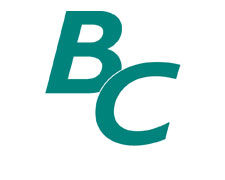Doctor of Nursing Practice (DNP)
Are you ready to move your APRN practice to the highest level of nursing practice?
The DNP program at Bellin College is designed to expand on the knowledge, skills, and abilities from bachelor’s and master’s-level programs by integrating new and enhanced skills in organizational and systems leadership, quality improvement processes, population health, and the translation of research to advanced clinical practice. Our practice-focused doctorate prepares graduates to excel in clinical leadership roles aimed at health system transformation and improved patient outcomes.
The program has several entry points, including BSN-DNP, and MSN-DNP. MSN-DNP students that are not a certified APRN may be required to complete the Family Nurse Practitioner Post-Graduate Certificate.
- The MSN-DNP courses are offered online to accommodate working professionals. Students do not need to be present on campus to complete the degree.
- The BSN-DNP is a hybrid (online and face to face courses) program.
Academic plans may vary based on a gap analysis. To get started, review our application deadlines. Next, follow our application procedure. Depending on the program you are applying to, you may have a few additional application requirements to complete. Courses integrate all expected outcomes of the American Association of Colleges of Nursing (AACN) Essentials of Doctoral Education for Advanced Nursing Practice. At the conclusion of the program, the graduate is able to: Tuition charges listed are for planning purposes only and are subject to change. For more information, contact the Bellin College Bursar at (920) 433-6640. Why do I need a DNP? I am an NP and already have my MSN, so why should I return for a DNP? I have an MSN, but I am not a certified advanced practice registered nurse (APRN). I want to become an APRN, is this possible? Can I transfer credits or receive credit for prior learning? What is a DNP project? How many clinical hours do I need? Do I need to find my own clinical site? Can I work while in the DNP program? How many credits do I need? Do I need to come to Green Bay? • BSN to DNP (Hybrid format) Students enrolled in the Post-Graduate Certificate option to complete the APRN component will need to attend in-person classes.WE MAKE THE GRADUATE APPLICATION PROCESS SIMPLE.
Program Goals
Program Outcomes
Load More
Nursing is moving in the direction of other health professions in the transition to the DNP. Medicine (MD), Dentistry (DDS), Pharmacy (PharmD), Psychology (PsyD), Physical Therapy (DPT), and Audiology (AudD) all require or offer practice doctorates. While not yet required by all APRN certifying bodies, the American Association of Colleges of Nursing (AACN) advises the educational entry level for advanced practice nurses be at the DNP level. See the AACN DNP Fact Sheet for additional information.
The DNP provides advanced clinical preparation and competence in evidence-based practice, quality improvement, and systems leadership, among other key competencies. Graduates of DNP programs are equipped with the highest level of scientific knowledge and practice expertise, which prepares them to lead health care reform at the unit, system, and population level.
Yes. We have a post-graduate certificate (PGC) specifically for those who already have their MSN. The PGC prepares graduates to certify as a Family Nurse Practitioner. The plan of study would be individualized for you based on your MSN transcript. It is possible to incorporate the PGC while completing the DNP academic degree.
The Graduate Nursing Program will accept up to 6 transfer credits of previous doctoral-level coursework into the DNP program based on the following criteria:
A DNP Project is a culminating project that provides an opportunity for critical analysis and synthesis of a clinical/practice topic. The project is designed to improve patient /population outcomes and contribute to the advancement of APRN practice. The project is completed throughout the program in collaboration with a clinical agency and guidance from a project advisor.
The DNP requires a minimum of 1000 credit hours. Certified APRNs will likely be able to use at least 500 hours from their MSN program. The specific number of clinical hours required will be determined through a gap analysis.
No, the DNP Program Coordinator and the Clinical Affiliation Coordinator work with the student and clinical partners for placement. However, a student may choose to find their own preceptor and practicum site. All preceptors and sites need approval from the DNP Program Director and faculty facilitating the practicum.
Yes, our program is designed for working professionals. How much each student works is an individual decision. We offer a full-time and part-time option.
The student will complete a minimum of 27 credits, additional credits may be required based on the outcome of the gap analysis.
• MSN to DNP (Online format)
Why Bellin College?
- Over 100-year history of educating professional nurses
- Patient care focused doctorate
- Personalized student practicum placements
- Faculty committed to your success
- Flexible, online cohort model (full-time and part-time options)
- Small class sizes
- No GRE required

